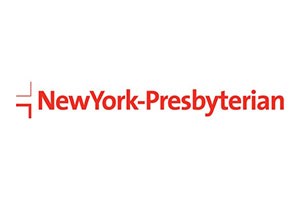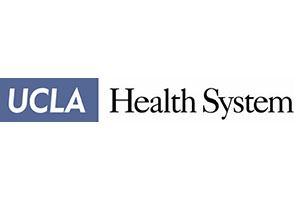The best hospitals feature some of the best doctors, state of the art facilities, and a commitment to optimizing the patient experience from admission to release.
The best hospitals are also on the leading edge when it comes to medical research, medical technology, and teaching the next generation of medical professionals.
But none of that would mean much if these institutions ignored the communities that host them. And so the best also show the way in terms of community outreach and engagement.
We scanned the healthcare landscape and determined that the following are the best hospitals of 2023.
Rankings
1. Mayo Clinic – Rochester, MN

To many, the Mayo Clinic in unheralded Rochester, Minnesota, may seem an unlikely choice to lead a list of the best hospitals in the world. But the 1.3 million people who use this 150 year old institution each year understand what all the hoopla is about.
What we like: The Mayo Clinic is the hub of more than 50 leading-edge research centers and provides a wealth of valuable medical information on its widely respected website. They also happen to offer one of the most satisfying patient experiences going.
Flaws: They have grown into such a widespread network that they risk diluting the product.
2. Massachusetts General Hospital – Boston, MA

Mass General, as it is known to Bostonians, has been the centerpiece of Boston’s world-renowned medical establishment for more than a century. It boasts an annual research budget of nearly $1 billion and is closely aligned with the Harvard Medical School.
What we like: Mass General is one of the world’s leading research and teaching hospitals. But it has never lost sight of its commitment to the local community or its dedication to the wellbeing of the more than 1.5 million patients that enter its doors every year.
Flaws: Their facilities are a patchwork of old and new that take some getting used to.
3. New York Presbyterian Hospital – New York, NY

New York Presbyterian is the result of the 1998 merger of New York Hospital and Presbyterian Hospital. NYPH ranks highly in a number of medical specialties for adults and children, and is affiliated with both Cornell College and Columbia University.
What we like: The two hospitals that became New York Presbyterian are rich in history. The first pediatric heart transplant was performed at Presbyterian, while the pap smear was invented at New York Hospital.
Flaws: It is in Manhattan. So access, parking, etc can be challenging and expensive.
4. Brigham and Women’s Hospital – Boston, MA

Brigham and Women’s Hospital is the cornerstone of the Longwood Medical Area in Boston and is right around the corner from Harvard Medical School. As such, many of the best and brightest medical minds in the country wind up at the hospital in one capacity or another.
What we like: Brigham and Women’s cancer center is one of the best in the country. The hospital has a long history of innovation. And the BWH research wing receives more funding than any other independent hospital in the US.
Flaws: Like Mass General, Brigham and Women’s has a maze-like quality.
5. Mount Sinai Hospital – New York, NY

Mount Sinai in New York is one of the nation’s largest hospitals. It is at the hub of a seven hospital network that encompasses most of New York City. It also has a close working relationship with the Icahn School of Medicine.
What we like: With the aging of the population Mount Sinai’s emphasis on geriatric research and medicine makes it an important medical center by any standards. At the other end of the spectrum their Kravis Children’s Hospital is one of the best in its field.
Flaws: A long wait for some procedures has become even longer due to the coronavirus outbreak.
6. Ronald Reagan UCLA Medical Center – Los Angeles, CA

The Ronald Reagan UCLA Medical Center is the beating heart of the Southern California healthcare system. It is the centerpiece of the UCLA Health network and also features the UCLA Mattel Children’s Hospital. One of only 35 level 1 pediatric trauma centers in the US.
What we like: The support staff at RRMC is perhaps the best in the country. Many of the hospital’s departments are rated in the top 5 nationwide. The combination of leading-edge medical science and world-class support staff equals an outstanding patient experience.
Flaws: Although built to recent seismic standards, the RRMC nonetheless sits close to numerous earthquake faults.
7. Stanford Medical Center – Stanford, CA

Stanford Medical Center is part of the larger Stanford Health network. The hospital has long been on the leading edge of medical research and practice and continually ranks near the top in numerous specialties.
What we like: Stanford Medical is where both the first stand-alone heart transplant and the first combination heart-lung transplant in the US were performed. They also lead the pack in research into the genetic origins of cancer.
Flaws: If they have a weakness it is their rehabilitative programs, which are good but not great.
8. Johns Hopkins Hospital – Baltimore, MD

Johns Hopkins Hospital routinely ends up on many a ‘best hospital’ list due to its commitment to the patient experience, leading-edge research, and innovative treatments. It also gets high marks for its surgical division, community outreach programs, and gene therapy research.
What we like: The Johns Hopkins Hospital provides a welcoming, comfortable, reassuring environment for patients. It complements that with innovative treatment protocols, world-class surgical facilities, and a commitment to community.
Flaws: Not terribly convenient.
9. Duke University Hospital – Durham, NC

Duke University Hospital began life in 1930 as a clinic designed to bring quality medical care to an underserved population in North Carolina. 90 years later, it is one of the best hospitals in the world and treats more than 2 million patients per year.
What we like: You will not usually encounter the kind of waiting lists for elective procedures here that you will elsewhere. Their Integrative Medicine system is leading the way in producing individualized treatment strategies.
Flaws: While not as isolated as it once was, it is still not as convenient as most others.
10. Cleveland Clinic – Cleveland, OH

The Cleveland Clinic leadership has been single-minded in chasing their dream of turning their medical facility into a world-class hospital. And the results speak for themselves. Their cardiovascular care is as good as it gets, as is their community outreach program.
What we like: The administrators of Cleveland Clinic have been thinking outside the box for more than 20 years. The result is a multi-disciplinary powerhouse that draws millions of patients a year and is the envy of hospitals worldwide.
Flaws: The patient experience, while good, is not on par with some of the other hospitals on our list.
Who Needs The Best Hospitals?
In a very real sense, we all do. These institutions are not just upscale medical facilities that cater to the high and mighty. They also happen to be institutions of learning where promising young medical minds earn the experience they will take with them when they move on to other hospitals. They are incubators of innovative treatments that benefit millions of people. And they have been dedicated outposts in the fight against the coronavirus.
The best hospitals have long exerted influence that extends far beyond the confines of their facilities. They were pioneers in the adoption of electronic health records. They demonstrated to others the value of optimizing the patient experience. And they provide a model for inclusive leadership that resonates across the entire business spectrum.
How We Ranked
When ranking for our list, we started with several dozen hospitals generally considered to be the best in the country. We then dug deep into the public record to determine which ones were worthy of the label ‘world-class’ and which were solid but otherwise unremarkable. That process left us with the 10 hospitals you see above.
Once we had our 10 finalists, we refined our assessment criteria further. We considered the number of beds (a great hospital needs to be large enough to be of use in the event of a large-scale health emergency), the hospital’s reputation for providing innovative treatments, and their ability to maintain a high level of service over a prolonged period of time.
We considered the reputation of the medical staff, the stability of its leadership, and sifted through mountains of feedback from patients relating their experiences. We also considered the degree to which each hospital engaged their communities and the form that engagement took.
FAQs
Q: What separates the best hospitals from the rest?
A: What separates the best hospitals from the rest is never one thing. It is a combination of things, starting with the quality of the medical staff. After that, the best hospitals typically have a highly trained, effective, and efficient support staff that prioritizes patient care. The best hospitals also have the latest cutting edge medical technology to assist in your care, and offer new, innovative treatments that provide a greater chance of success.
Q: Are the best hospitals expensive?
A: The short answer is, ‘Yes’. Most of the best hospitals are more expensive than the average hospital. Quality has never been cheap, and as it is with most things in life, you often get what you pay for when it comes to healthcare. Even so, if you have good insurance coverage and can afford the deductibles and misc charges that inevitably find their way onto the hospital bill, you should have no problem.
Q: Why should anyone pay extra to go to one of the best hospitals?
A: Why would anyone pay extra for a good winter coat? Because it will do a better job keeping them warm than a cheap coat will. Likewise, paying more for one of the best hospitals will likely provide you with the best chance of overcoming your health problem. Regardless of what it is. Keep in mind though that there are no guarantees (1). What you are paying extra for is an enhanced probability of success.
Q: Do the best hospitals really put patients first?
A: If there is one area where the best hospitals separate themselves from the pack it is in providing a higher level of personalized service. We said earlier that hospitals are not hotels. But the fact is, if you have a private room in some of the best hospitals, it can sometimes be difficult to tell the difference (2). There are usually more staff to tend to patients, and they are expected to make those patients comfortable and welcome.
Q: Are the best hospitals just price-gouging because they can?
A: No. Some of the things that drive up the cost of care at the best hospitals are the very things that help make them the best. Developing innovative treatments is expensive. So is the latest medical technology. Rigorous maintenance of a hygienic, safe, comfortable environment also costs money. And let’s not forget that the best doctors and surgeons in the world are not giving away their services.
Q: Why aren’t all hospitals equally good?
A: It would be a wonderful world indeed if every hospital were able to offer the same level of outstanding care as today’s best hospitals. There are a lot of reasons why that is not so, ranging from the simple to the complex. In a nutshell, it comes down to the fact that not every hospital has the same resources to draw upon. Why that is could fill several books.
Q: Do the best hospitals do a better job protecting patient privacy?
A: All hospitals in the US must rigorously adhere to the Health Insurance Portability and Accountability Act (3) or HIPAA for short. There are no exceptions. HIPAA sets ironclad guidelines regarding the handling of private medical information no matter who is gathering or handling that information. HIPAA is the rough equivalent of Europe’s General Data Protection Regulation (4), or GDPR, and Japan’s Protection of Personal Information Act (5).
Q: How do I know I am getting what I pay for in the best hospitals?
A: For years many patients have suspected that hospitals inflate prices at will, or just make them up as they go along. These suspicions were fueled by the fact that hospital bills today read more like space station specs than bills for medical services. In 2019, the US government responded to these concerns and instituted regulations that require all hospitals to post prices for their basic services online (6) so patients can see what they are paying for.
Q: Do the best hospitals treat anyone?
A: No US hospital has the right to refuse emergency treatment to someone who needs it (7). That’s in contrast to Europe, where things are not so clear cut (8). US hospitals do have the right to turn away uninsured patients who wish to receive treatment for less than life-threatening conditions. Is it fair? Maybe not. At the same time, it is not fair to expect those who spent vast amounts of money on their medical education to provide their services for free, either.
Q: Are the best hospitals conveniently located?
A: ’Convenient’ in this case is a relative term. On the one hand, traveling from Boise to a distant city may seem pretty inconvenient. However, most of the best hospitals in the US are located in city centers close to airports or other transportation hubs. So getting from the plane or train to the hospital is not usually a major hassle.
Q: Do the best hospitals run shuttle services?
A: Many, like Massachusetts General in Boston, run free shuttle bus services to various locations around the city (9). These services enhance the patient experience by making it much easier to get to and from the hospital for outpatient treatments and followup visits. It’s just one more thing that separates the top of the line hospitals from the rest.
Q: Do the best hospitals use EHR technology?
A: EHR or ‘electronic health records’ (10) are a digitized version of a patient’s medical history. They replace the old paper files that caused so many delays and had a nasty habit of getting lost. The best hospitals not only embrace EHRs, they helped lead the movement a decade ago that led to their widespread adoption. All the best hospitals will easily accommodate your EHRs.
Q: Do I need to be a resident of the USA to be treated in one of these hospitals?
A: No. But if you are a foreign visitor seeking medical care at an American hospital, it may not be as simple as showing up and expecting to be admitted. You will need to prove you have adequate insurance to cover all or most of the expected cost. Otherwise, you may be asked to pay the entire anticipated cost upfront, or you may just be turned away (unless it is an emergency). Some countries offer specific medical visas (11). The US is not one of them.
Q: Do the best hospitals have waiting lists?
A: Even in normal times, it is possible that you may wind up on a waiting list (12) for one of the best hospitals. There has never been any way to predict if that will be the case. But these are not normal times. Because of the recent covid-19 outbreak, hospitals in most states closed themselves to elective procedures. When they do reopen, there is bound to be a lengthy backlog of patients (13).
Q: What causes hospitals to rise and fall in hospital rankings?
A: It is not always a single issue. In fact, in some cases, a hospital may not do anything different or wrong. It may just be that a different hospital began offering a breakthrough treatment, so a hospital that was on the list had to step aside to make room in the rankings. Other times there may be significant staff retirements or departures. And in some cases, a different hospital may make huge capital improvements that deserve recognition.
Recap
The best hospitals prioritize the patient experience. But they would not be the best if they stopped there. They are also staffed by world-class doctors and nurses, provide leading-edge treatments, and have state-of-the-art medical technology at their disposal.
The best hospitals in the US are led by visionaries who respect the past, make the most of the present, and anticipate future developments with a high degree of accuracy. When you are admitted to one of these institutions, you should always feel like you are in the best of hands.
The hospitals on our list meet all of the above criteria year after year. They got where they are through careful planning and execution. The real winners here are not the hospital administration or the staff, however. The real winners are the patients and the communities they serve.
For cpoe.org’s #1 best hospital, click here.

